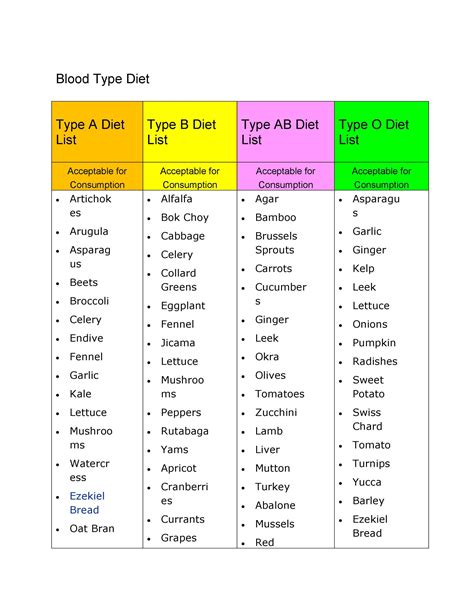Discover the benefits of an alkaline diet, how to choose alkaline-friendly foods, and meal planning tips for maintaining a balanced pH level.
Understanding Alkaline Diet
Contents
An alkaline diet is a diet that is focused on eating foods that are believed to help maintain the body’s optimal pH level. The concept behind the alkaline diet is that some foods, when metabolized, can leave an acidic residue in the body. This can lead to various health issues such as inflammation, fatigue, and even diseases. By consuming alkaline-friendly foods, the body’s pH level can be balanced, leading to improved overall health and well-being.
When following an alkaline diet, it is important to focus on consuming foods that are low in acid. This includes fruits, vegetables, nuts, seeds, and legumes. On the other hand, foods that are high in acid, such as meat, dairy, and processed foods, should be limited or avoided. By meal planning for an alkaline diet, individuals can ensure that they are consuming a variety of foods from different food groups that are alkaline-friendly.
One of the key aspects of the alkaline diet is understanding the role of pH levels in the body. The pH scale measures the level of acidity or alkalinity in the body, ranging from 0 to 14. A pH level of 7 is considered neutral, while levels below 7 are acidic and above 7 are alkaline. By consuming alkaline-friendly foods, individuals aim to keep their body’s pH level slightly alkaline, which is believed to be the optimum state for overall health.
The benefits of an alkaline diet are said to include improved digestion, increased energy levels, clearer skin, and even weight loss. While more research is needed to fully understand the effects of an alkaline diet on the body, many individuals have reported positive outcomes from adopting this dietary approach.
Choosing Alkaline-Friendly Foods
When following an alkaline diet, it is essential to include foods that are considered alkaline-friendly. These are foods that help to maintain the acid-alkaline balance in the body and promote overall health and well-being. One of the key principles of the alkaline diet is to consume foods that have an alkalizing effect on the body, rather than foods that are acid-forming.
Some of the most alkaline-friendly foods include leafy green vegetables, such as spinach, kale, and collard greens. These foods are rich in important alkaline minerals like calcium and magnesium, which help to neutralize excess acids in the body. Other alkaline-friendly foods include fruits like watermelon, grapefruit, and berries, as well as raw nuts and seeds, and healthy oils such as olive oil and avocado oil.
On the other hand, there are certain foods that are considered to be acid-forming and should be limited or avoided when following an alkaline diet. These include processed foods, refined sugars, caffeine, and alcohol. These foods can disrupt the acid-alkaline balance in the body and contribute to acidosis, which is associated with various health issues such as fatigue, digestive problems, and weakened immune function.
When choosing alkaline-friendly foods, it is important to focus on incorporating a variety of nutrient-dense foods into your diet. This can include a wide range of fruits, vegetables, whole grains, and plant-based proteins to ensure that you are getting a balance of essential nutrients that support alkalinity in the body.
Meal Planning for Alkaline Diet
When embarking on an alkaline diet, it’s important to plan your meals carefully to ensure that you are consuming the right alkaline-friendly foods. This involves making thoughtful choices about the types of foods you incorporate into your diet and the ratios in which you consume them.
One of the key principles of meal planning for an alkaline diet is to focus on consuming a variety of fresh, alkaline-forming foods such as fruits, vegetables, nuts, seeds, and legumes. These foods have a high pH level and can help to balance the acidity in your body.
When planning your meals, aim to include a wide range of colorful fruits and vegetables, such as leafy greens, bell peppers, berries, and citrus fruits. These foods are not only alkaline-forming, but also provide essential nutrients and antioxidants that are beneficial for overall health.
In addition to focusing on alkaline-forming foods, it’s important to reduce the consumption of acidic foods such as processed meats, dairy products, refined sugars, and caffeine. By minimizing these acidic foods in your diet, you can help to maintain optimal pH levels in the body and promote a more alkaline environment.
Finally, meal planning for an alkaline diet also involves being mindful of portion sizes and meal timings. It’s beneficial to eat smaller, more frequent meals throughout the day, rather than large, heavy meals. This can help to support digestive health and maintain blood sugar levels, contributing to overall well-being in conjunction with the alkaline diet.
Alkaline Diet and pH Levels
When we talk about the alkaline diet, we cannot ignore the importance of pH levels in the body. The pH level is a measure of how acidic or alkaline a substance is, and it plays a significant role in maintaining the body’s overall health. In the context of the alkaline diet, it refers to the impact that foods have on the body’s pH levels once they are metabolized.
It is believed that consuming alkaline-friendly foods can help balance the body’s pH levels and promote a more alkaline environment. The goal of the alkaline diet is to reduce the intake of acidic foods and increase the consumption of alkaline-forming foods, such as fruits, vegetables, nuts, and seeds, to achieve a balanced pH level. By doing so, proponents of the alkaline diet claim that it can improve overall health and well-being.
Understanding the relationship between alkaline diet and pH levels is crucial for those who are looking to adopt this dietary approach. When the body’s pH levels are balanced, it is believed to create an environment that is less conducive to disease and inflammation. However, it is essential to note that the body has its mechanisms for maintaining pH balance, and the impact of diet on pH levels may vary from person to person.
While there is ongoing debate about the effectiveness of the alkaline diet in directly impacting pH levels, many people still choose to follow this dietary approach as a means of promoting a more alkaline environment in the body. Whether or not the alkaline diet has a direct impact on pH levels, incorporating more nutrient-dense, alkaline-forming foods such as leafy greens, fruits, and healthy fats can certainly contribute to overall health and well-being.
Benefits of Alkaline Diet
The alkaline diet emphasizes eating more alkaline foods to balance the body’s pH levels. By incorporating a variety of alkaline-friendly fruits and vegetables into your daily meals, you can experience a multitude of benefits. One major benefit of following an alkaline diet is improved digestion. Alkaline foods are rich in fiber, which helps to regulate the digestive system and prevent issues such as bloating and constipation. Additionally, these foods can help reduce inflammation in the body, leading to decreased risk of chronic diseases such as heart disease and diabetes.
Another advantage of the alkaline diet is increased energy levels. Alkaline foods are packed with essential vitamins and minerals that nourish the body and provide sustainable energy throughout the day. By consuming nutrient-dense foods, you can feel more alert and focused, and avoid energy crashes often associated with processed foods. In addition to physical benefits, an alkaline diet can also have a positive impact on mental health. Studies have shown that maintaining a balanced pH level through diet can reduce the risk of anxiety and depression, and promote overall emotional well-being.
Furthermore, the alkaline diet is known for its potential to promote weight loss. By focusing on natural, whole foods, individuals are less likely to consume excess calories and unhealthy fats. The high fiber content in alkaline foods also helps to keep you feeling fuller for longer, reducing the likelihood of overeating. As a result, many people find that they are able to reach and maintain a healthy weight more easily when following an alkaline diet.
Overall, the alkaline diet offers numerous benefits for both physical and mental well-being. From improved digestion and increased energy levels to weight management and emotional health, this approach to eating can lead to a healthier, more balanced lifestyle.












